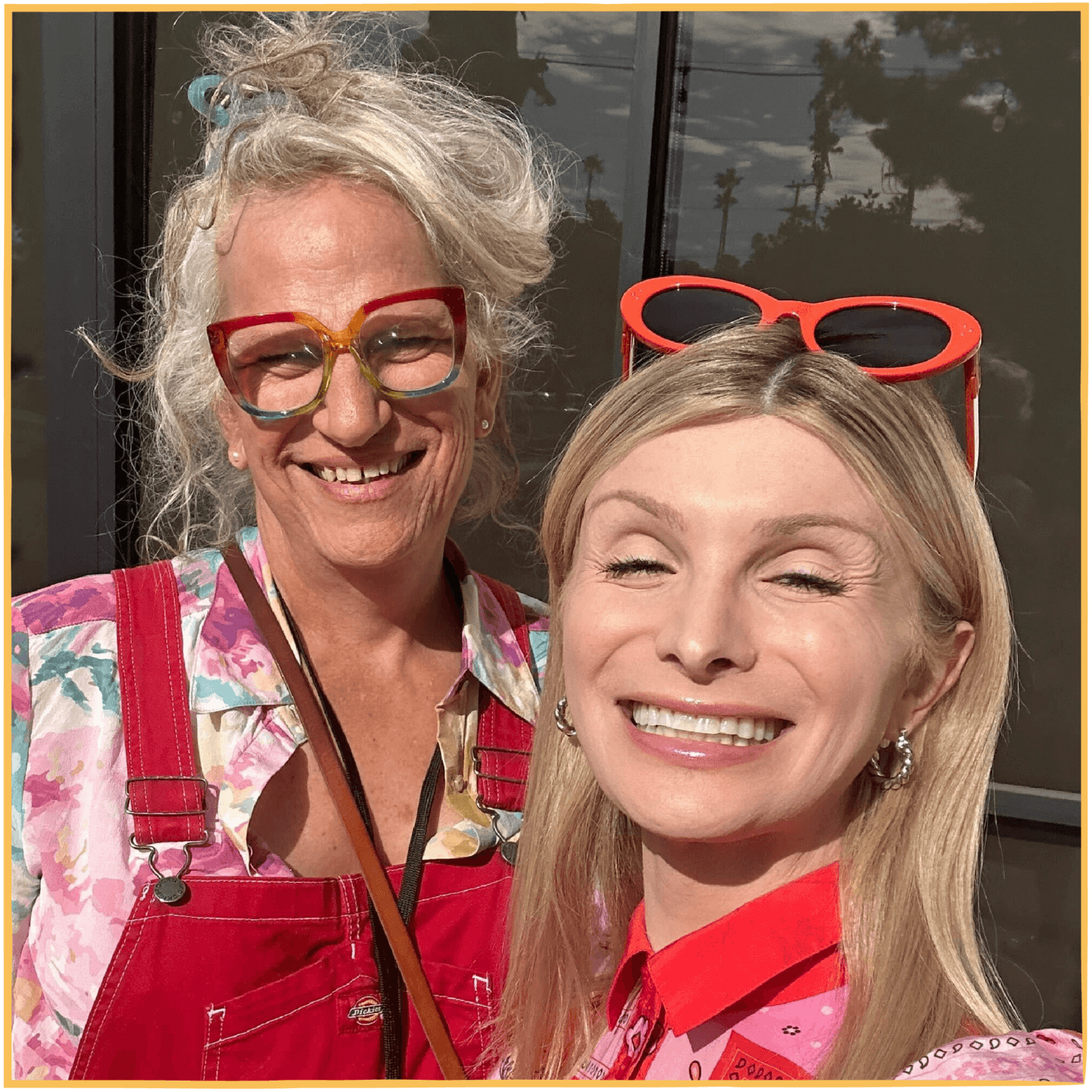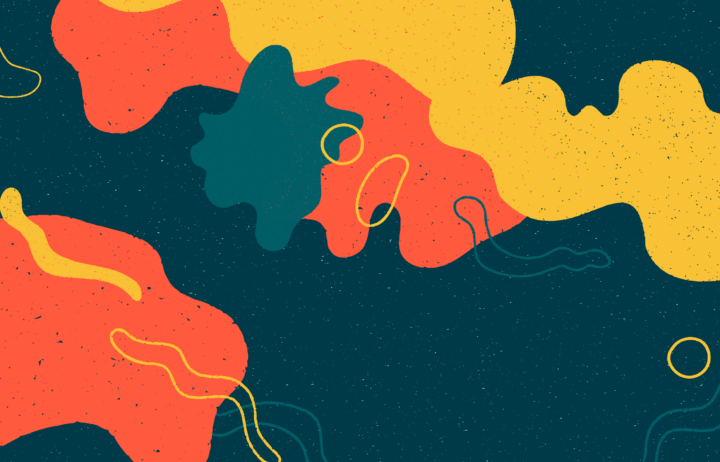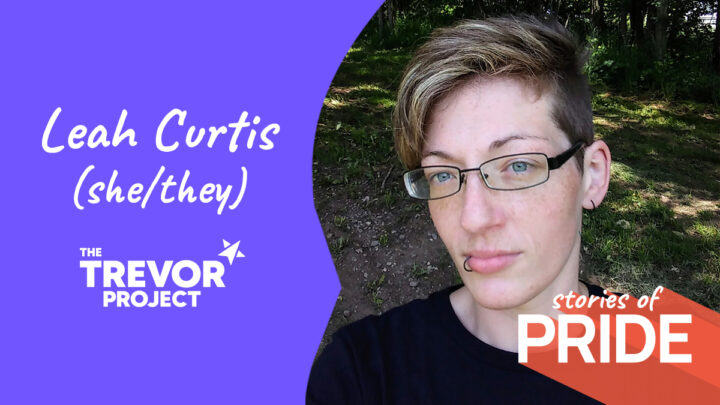Youth's Lives Every Day
The Trevor Project sat down with transgender activist, actress, and influencer Dylan Mulvaney and Harper Steele, writer and star of Netflix’s documentary film Will & Harper.
In this exclusive blog, the two trailblazers interviewed each other about their experiences as transgender women and the rewards and challenges of living openly as their authentic selves. With the rights of transgender people being debated across the country, this conversation is more timely than ever.
HARPER: You are so unafraid of being out front and online. Does it ever scare you?
DYLAN: I constantly go between the desire to be seen and wanting to hide under my covers and never come out. I think my craving for visibility first developed as a young queer kid attempting to overcompensate for my femininity, and now in my adulthood it manifests as pride for this second chance I’ve been given in life. I was so eager to share my new confidence with the world after transitioning, and now I’m a bit more reserved at times due to all the hate. I’ve been feeling super happy lately, and I feel myself riding a new wave of optimism!
HARPER: I felt the joy radiating off you when we first met. How do you deal with online hate?
DYLAN: Sometimes hate comments or videos send me into a puddle of tears, but usually a bath cheers me up quickly. When I’m tempted to react or respond to the hate, I take a moment to think through the trajectory of me adding fuel to the already blazing fire. If my response isn’t helpful or constructive, I move on like water off a duck’s back. I also have an excellent therapist and bffs on speed dial at all times. What about you? What has the reaction been like since Will & Harper premiered on Netflix?
HARPER: I’ll be honest, I’m not really sure about the reaction. I don’t ever look at reviews good or bad. Friends have been sending me lots of congratulatory messages and a few have sent me a review or a post someone made and those have all been positive because, well, friends sent them to me. Netflix seems to be happy that people are talking about it and watching it so I’m guessing that’s a good thing.
DYLAN: What do you hope people will learn after watching Will & Harper?
HARPER: From a trans perspective, what I want is for people to understand the damage that happens when you stop people from becoming who they need to be. If you deprive people of their gender, you’re depriving them of a chance at true joy. I think the other big takeaway from the film is that friendship is about being present, listening and caring — if someone you love is going through a period of change, spend time with them. Sometimes time is all it takes to say, “I’m here for you.”
DYLAN: Absolutely, it’s the simple things that go a long way.
HARPER: How do you feel about being trans?
DYLAN: I love my transness 99% of the time. It is a gift and one that I keep unwrapping. For a long time, I felt like an alien on this planet with few people to relate to, and now I feel a connection to other trans folks stronger than ever. The 1% of disliking my transness, it comes in times of comparison to cis folks. When I try to run from my transness and cruelly critique my body or mind, I remind myself that everyone is plagued by different insecurities, and that mine just happen to be linked to identity. I hope soon that the world will see trans people as a gift, too.
HARPER: Insecurities are definitely a universal experience — trans or cis. Can you name three heroes of yours that are not friends or family?
DYLAN: Dolly Parton because she, a ciswoman, has given me the courage to stand strong as a transwoman in my celebration of hyperfemininity. She loves pink, and God, and doesn’t believe a higher power would shame us for loving who we love or being soft-hearted. She has the largest portrait amongst the wall of my women heroes in my bedroom. This might be a cop out, but a good majority of Gen Z are my heroes. They aren’t afraid to speak their minds and they make me feel like trans people might be universally accepted if these are the kinds of humans who are growing up to have thoughtful, kind souls. Alan Cumming. This is technically cheating because he is a dear friend, but I find Alan Cumming to be the loveliest human on the planet and has been a crucial role model to me in my life. Alan is a master of bringing queerness and intelligence into his work, but always finds the funny. He is actively listening to the world around him and what sets him apart from the rest is that he is ready to take action to fix things with an empathetic approach.
HARPER: All excellent choices.
DYLAN: How do you think allies can show up for people in our community in a real and impactful way?
HARPER: I believe in the micro over the macro — so I think if you are cis or you are not queer, you can always start a conversation with “Hey, cool shoes” or “I love your hair” — you know, what they used to call “being friendly.” Tiny moments like that have always allowed me to feel safer in spaces I’m not comfortable in. Allyship is important but as a trans woman I’m not here to explain my existence to anyone. I find this can be confusing for cisgendered people. To somehow connect with me, they need to “understand” me. Our allies need to know there’s a certain wonderful thing about being trans that they will never understand. Maybe stop trying to understand us and instead just be there for us — either at a voting booth or just being friendly. Outside of that, if you are a true ally, stop bitching about pronouns. If you can play Wordle you can figure it out.
DYLAN: Exactly. I do a lot of work for The Trevor Project, and their research found that 46% of trans and nonbinary youth seriously considered attempting suicide in the past year. It’s devastating. Yet, the findings also show that transgender and nonbinary young people who had access to gender-affirming clothing, gender-neutral bathrooms at school, and had their pronouns respected by the people they live with, had lower rates of attempting suicide. There’s simple actions everyone can take that are quite literally life-saving. Just let us live openly as our authentic selves.
HARPER: Perfectly said. Let’s end this with some joy — what’s a vacation look like for you?
DYLAN: Oh I LOVE a vacation. If it’s up to me I’ll bring my best friend Lily somewhere special and we’ll order room service and wear the fluffy white hotel robes. I usually don’t end up doing tourist activities, but I’m a huge animal lover so I’ll often try to visit some sort of animal sanctuary or excursion. For example in Scotland this last summer, it was my goal to see a Highland cow (and I did!) I also am addicted to jacuzzis, so anywhere I can find a great jacuzzi I am down.


